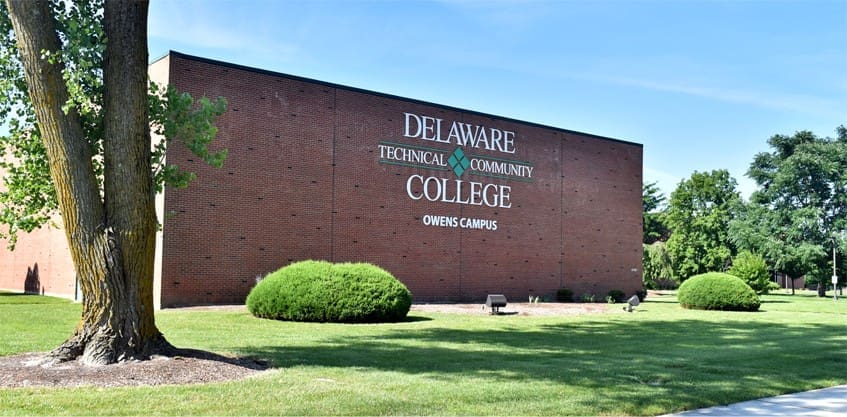It was higher education day in the Joint Finance Committee Thursday, in which the big three state institutions – University of Delaware, Delaware State University and Delaware Technical Community College – made their cases for millions in state funding.
DelTech, which has $100,460,200 penciled in through the Governor’s Recommended Budget, is asking for additional $525,000 for salary competitiveness, which the committee pushed back on.
Just as in last year’s hearing, Sen. Dave Lawson, R-Marydel, pressed DelTech President Mark Brainard with his questioning.
Prior to Brainard even taking a seat in the middle of the fishbowl of the legislators, Lawson questioned why the top 12 employees at DelTech make $1.2 million.
“I’ve got a problem with that, I’ve got a major problem with it,” he said. “It needs to go to the classroom, to go to the kids.”
His concern was in response to DelTech asking for about $525,000 in state funding – which was not included in Gov. John Carney’s recommended budget for fiscal year 2025 – to raise salaries for faculty and administration, or Plan A and Plan D employees, respectively.
“Plan A is for faculty and that’s about 450 employees college-wide,” Brainard said. “Salary Plan D is for administrators, and that’s 45 individuals college-wide, deans, directors, vice presidents.”
Rep. Kim Williams, D-Marshallton, and chair of the House Education Committee, also took exception to the request for funding to go to raises.
“What’s the point of having a stabilization plan if we’re going to now back fund it with a half a million?” she said.
The stabilization plan, part of the governor’s recommended budget, is funded at $982,300 and is meant to increase and maintain faculty salary competitiveness.
Both Williams and Sen. Eric Buckson, R-Dover, who are former educators in Delaware public schools, said additional raises on top of the stabilization plan are not fair because of the requirements of kindergarten through 12th grade educators as opposed to the DelTech instructors.
“They don’t have the same requirements as our educators have to go through to be able to teach in a higher ed,” she said. “I mean, we have many of our representatives and senators who work at some of these places, and so you can’t compare the two. So if we have a stabilization plan in place, I don’t know why we’re now backfilling it with something else.”
Buckson, who’s on the Senate Education Committee, said the legislators and DelTech need to to understand what Williams is saying without thinking that their work isn’t appreciated or important.
“Public school teachers and what they’re dealing with every single day is different,” he said. “Their requirements are definitely different and that has to matter if funds are limited.”
Brainard said the investments the General Assembly has made in the past few years has helped combat the shortage of instructors, and he pointed out that DelTech monitors the average salaries of teachers in the 19 school districts.
qIn the past, their instructors have been on par with the lowest-paying districts, and now, he said, DelTech educators earn about the middle of the pack, which is about $45,000.
“We go to school for four years to be educated, to get a degree in education,” said Rep. Stephanie Bolden, D-Wilmington. “And yet, we’re just taking people that are in business, that are coming from their business, that are teaching people.”
Lawson also pressed Brainard about lawsuits against the school, specifically pointing to a Title 9 lawsuit involving Melissa Rakes, the associate vice president for academic affairs at DelTech.
Lawson did not go into details about the lawsuit and Brainard said he could not comment, but acknowledged there’s been three lawsuits he can remember over the last 10 years.
He also questioned Brainard about “blackout dates,” and said he’s talked to faculty at DelTech who complained because they want to use their allotted vacation days but are denied.
Brainard said, just like any business, there’s certain dates that are prohibited from taking off, like the first day of the semester or any date that would have a negative impact on students.
The committee did praise DelTech for their pathway programs and the 2,000 dual enrollment students who are in Delaware high schools but earning college credits at the university.


Raised in Doylestown, Pennsylvania, Jarek earned a B.A. in journalism and a B.A. in political science from Temple University in 2021. After running CNN’s Michael Smerconish’s YouTube channel, Jarek became a reporter for the Bucks County Herald before joining Delaware LIVE News.
Share this Post




